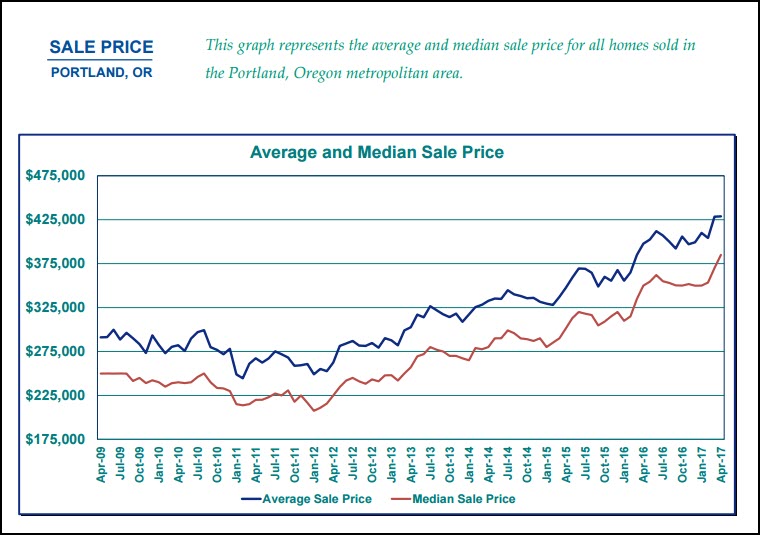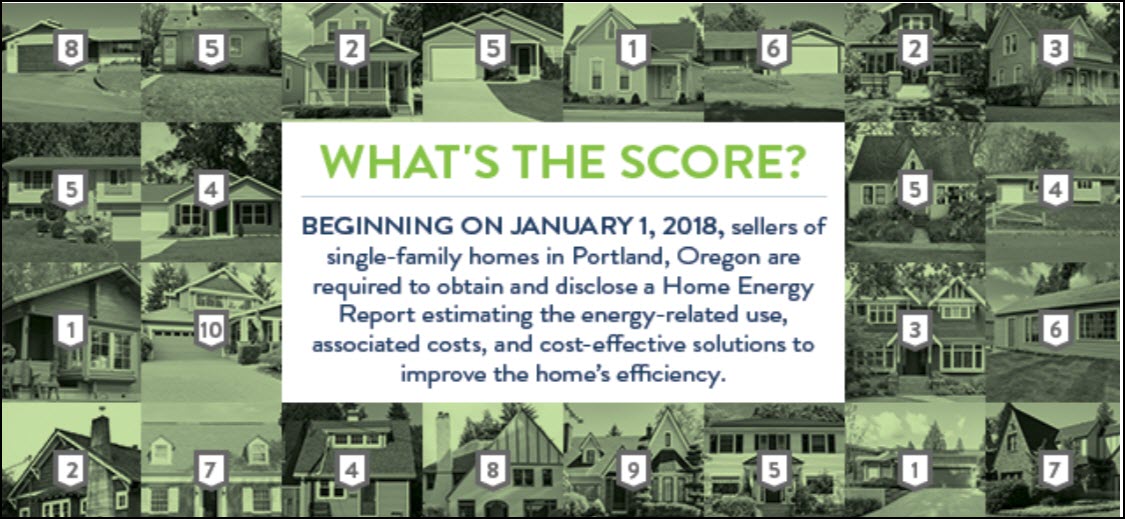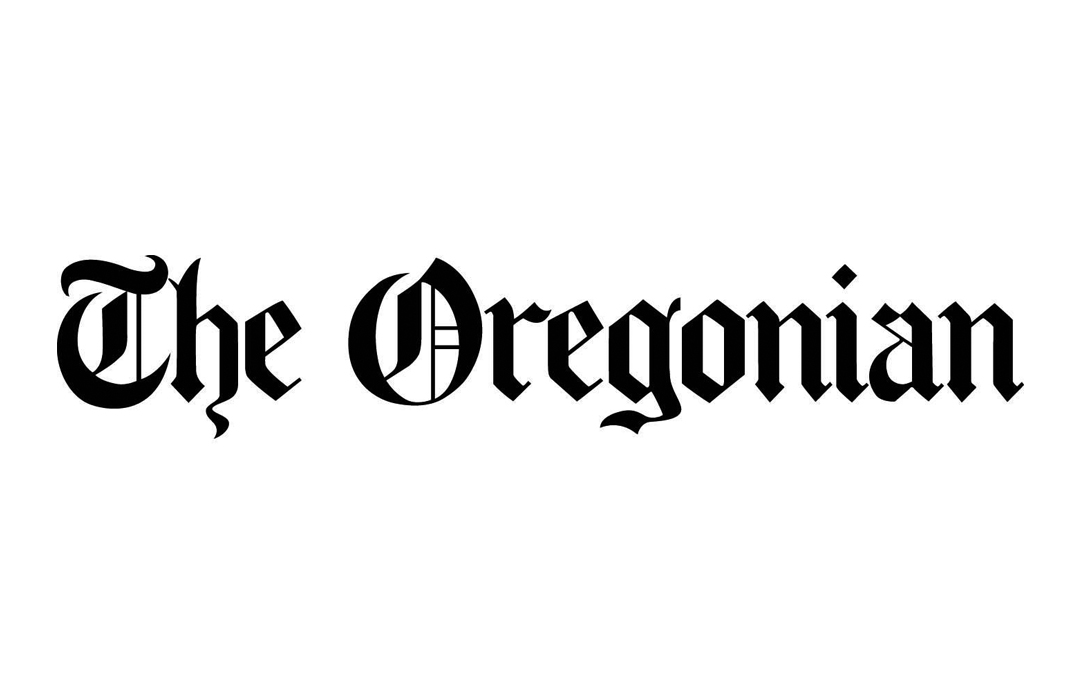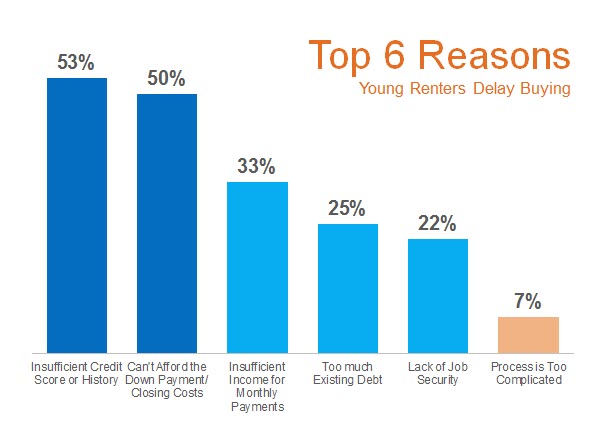rch Residential Highlights
The Portland metro area had
a sunny month for new listings
this March. At 3,604, new listings
outpaced March 2016 (3,409) by
5.7% and February 2017 (2,521) by
43.0%. This was the strongest March
for new listings in the area since
2010, when 4,987 were offered for
the month.
Pending sales (3,043) warmed
28.5% over last month in February
2017 (2,369) but fell 1.1% short of
the 3,076 offers accepted during this month last year in March 2016. Closed sales, at 2,494, similarly
outpaced February 2017 (1,669) by
49.4% but still ended 2.8% cooler
than in March 2016 when 2,565
closings were recorded for the
month.
Total market time decreased by
four days this March, ending at 58
days. Inventory decreased as well,
ending at 1.3 months. There were
3,313 active residential listings in
the Portland metro area this March.
Average and Median Sale Prices
Comparing the average price of
homes sold in the twelve months
ending March 31st of this year
($404,300) with the average price
of homes in the twelve months
ending March 2016 ($361,100)
shows an increase of 12.0%. In the
same comparison, the median has
increased 12.2% from $315,000 to
$353,500.
 The Portland metro area saw some mixed real estate activity this April, while the year to date still remains cooler compared to 2016. New listings, at 3,759, fared 4.3% better than last month in March 2017 (3,604), but fell 7.9% short of the 4,082 new listings offered last year in April 2016. Similarly, pending sales (3,088) were 10.0% cooler than in April 2016 (3,432) but showed a modest 1.5% gain over last month in March 2017 (3,043). Closed sales, at 2,219, fell 11.0% short compared to last month’s 2,494 closings and 15% short compared to the 2,611 closings recorded last year in April 2016. Inventory crawled upward in April, ending at 1.7 months. Total market time decreased by four days, ending at 42 days. There were 3,753 active residential listings in the Portland metro area in April.
The Portland metro area saw some mixed real estate activity this April, while the year to date still remains cooler compared to 2016. New listings, at 3,759, fared 4.3% better than last month in March 2017 (3,604), but fell 7.9% short of the 4,082 new listings offered last year in April 2016. Similarly, pending sales (3,088) were 10.0% cooler than in April 2016 (3,432) but showed a modest 1.5% gain over last month in March 2017 (3,043). Closed sales, at 2,219, fell 11.0% short compared to last month’s 2,494 closings and 15% short compared to the 2,611 closings recorded last year in April 2016. Inventory crawled upward in April, ending at 1.7 months. Total market time decreased by four days, ending at 42 days. There were 3,753 active residential listings in the Portland metro area in April.
Comparing the average price of homes sold in the twelve months ending April 30th of this year ($406,500) with the average price of homes in the twelve months ending April 2016 ($365,200) shows an increase of 11.3%. In the same comparison, the median has increased 11.6% from $318,500 to $355,500.
Our home of the month is a condo off Macadam just south of the south waterfront in the coveted RiverPoint condo community. This fabulous home is two bedrooms plus a den, and overlooks the river, downtown and Mt Hood, and its on the ground floor with a two car garage! Check it out here at http://www.roblevy.com/Property/6116-SW-RIVERPOINT-LN-Portland-17683285
 Thats right, if you own a home in the CITY of Portland and want to sell it, starting in January 2018 you must get an energy audit performed prior to your home going on the market. This applies to single family homes and attached homes too. This means you must have this audit perfomed before you start marketing the property, which of course means while listing it. The city projects this to cost $250 - $300 but of course as more inspectors come online, the cost may vary.
Thats right, if you own a home in the CITY of Portland and want to sell it, starting in January 2018 you must get an energy audit performed prior to your home going on the market. This applies to single family homes and attached homes too. This means you must have this audit perfomed before you start marketing the property, which of course means while listing it. The city projects this to cost $250 - $300 but of course as more inspectors come online, the cost may vary.  The Portland Oregonian recently released a report showing the 15 neighborhoods in metropolitan Portland/Vancouver where the average prices are growing the fastest. I'll bet you are guessing inner SE, or maybe NE Portland but you might be surprised! in fact Woodburn prices are up over 22%, and Lake Oswego's lofty average price of over $500,000 is up over 18%.
The Portland Oregonian recently released a report showing the 15 neighborhoods in metropolitan Portland/Vancouver where the average prices are growing the fastest. I'll bet you are guessing inner SE, or maybe NE Portland but you might be surprised! in fact Woodburn prices are up over 22%, and Lake Oswego's lofty average price of over $500,000 is up over 18%. 


 The Portland metro area saw some mixed real estate activity this April, while the year to date still remains cooler compared to 2016. New listings, at 3,759, fared 4.3% better than last month in March 2017 (3,604), but fell 7.9% short of the 4,082 new listings offered last year in April 2016. Similarly, pending sales (3,088) were 10.0% cooler than in April 2016 (3,432) but showed a modest 1.5% gain over last month in March 2017 (3,043). Closed sales, at 2,219, fell 11.0% short compared to last month’s 2,494 closings and 15% short compared to the 2,611 closings recorded last year in April 2016. Inventory crawled upward in April, ending at 1.7 months. Total market time decreased by four days, ending at 42 days. There were 3,753 active residential listings in the Portland metro area in April.
The Portland metro area saw some mixed real estate activity this April, while the year to date still remains cooler compared to 2016. New listings, at 3,759, fared 4.3% better than last month in March 2017 (3,604), but fell 7.9% short of the 4,082 new listings offered last year in April 2016. Similarly, pending sales (3,088) were 10.0% cooler than in April 2016 (3,432) but showed a modest 1.5% gain over last month in March 2017 (3,043). Closed sales, at 2,219, fell 11.0% short compared to last month’s 2,494 closings and 15% short compared to the 2,611 closings recorded last year in April 2016. Inventory crawled upward in April, ending at 1.7 months. Total market time decreased by four days, ending at 42 days. There were 3,753 active residential listings in the Portland metro area in April. 



